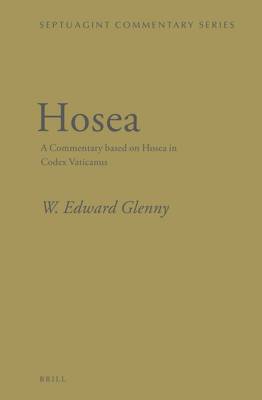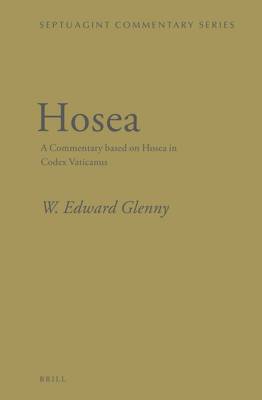
- Afhalen na 1 uur in een winkel met voorraad
- Gratis thuislevering in België vanaf € 30
- Ruim aanbod met 7 miljoen producten
- Afhalen na 1 uur in een winkel met voorraad
- Gratis thuislevering in België vanaf € 30
- Ruim aanbod met 7 miljoen producten
Zoeken
Omschrijving
Rather than studying the LXX of Hosea mainly as a text-critical resource for the Hebrew or as a help for interpreting the Hebrew, this commentary, as part of the Septuagint Commentary Series, primarily examines the Greek text of Hosea as an artifact in its own right to seek to determine how it would have been understood by early Greek readers who were unfamiliar with the Hebrew. This commentary is based on the uncorrected text of Vaticanus, and it contains a copy of that text with notes discussing readings that differ from modern editions of the LXX along with a literal translation of that text. This commentary also has an introduction to the Minor Prophets in the Septuagint. It is relevant for anyone studying the LXX or the book of Hosea.
Specificaties
Betrokkenen
- Auteur(s):
- Uitgeverij:
Inhoud
- Aantal bladzijden:
- 216
- Taal:
- Engels
- Reeks:
Eigenschappen
- Productcode (EAN):
- 9789004245563
- Verschijningsdatum:
- 5/04/2013
- Uitvoering:
- Hardcover
- Formaat:
- Genaaid
- Afmetingen:
- 155 mm x 239 mm
- Gewicht:
- 498 g

Alleen bij Standaard Boekhandel
+ 457 punten op je klantenkaart van Standaard Boekhandel
Beoordelingen
We publiceren alleen reviews die voldoen aan de voorwaarden voor reviews. Bekijk onze voorwaarden voor reviews.











